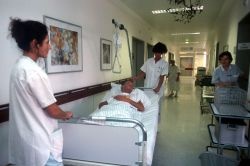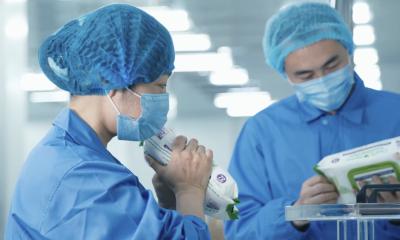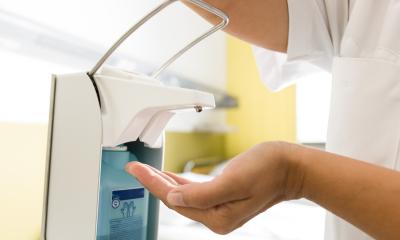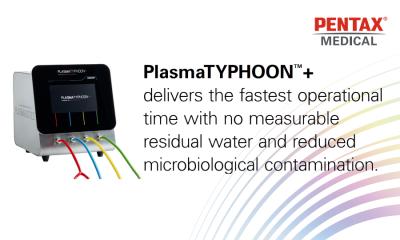Work stress among staff associated with hospital infections
Hospital-associated infections are a serious public health problem. Approximately 50 000 patients get hospital infection during their stay, and these infections are estimated to contribute to death in 2000 - 5000 cases. A recent study by The Finnish Institute of Occupational Health and Turku University Hospital shows that hospital-associated infections among patients are more common in wards where staff reports high work stress, problems in collaboration, and long working hours.

Hospital-associated infections are infections which initiate during hospital stay or hospital treatment. The consequences of hospital-associated infections in terms of extended length of stay have been estimated to be 360 000 extra days with the costs of more than 200 million euros each year (Kujala P, Suomen Lääkärilehti, 2005). The most effective methods to prevent hospital infections are use of alcohol-based hand rub and other practices of good hospital hygiene, says infection control officer, Dr. Reijo Peltonen from Turku University Hospital.
Work stress and problems in collaboration among ward staff have been suggested to contribute to the emergency of hospital infections. However, earlier studies on this issue are largely lacking. ”Our study shows an association between poor psychosocial working conditions in hospital ward and hospital infections among patients. However, we can not conclude whether working conditions cause infections among patients or whether high prevalence of infections among patients cause high stress, problems in collaboration, and extended work days among the staff. However, we are convinced that it is important to invest efforts both to the prevention of hospital infections and to the development of personnel wellbeing”, say the leaders of the Finnish Hospital Personnel Study, Docent Marianna Virtanen and Professor Mika Kivimäki from the Finnish Institute of Occupational Health.
Of the 1092 patients, 9% had hospital-associated infection. The prevalence data were collected during one day in all somatic illness wards of the six hospitals of Varsinais-Suomi hospital district. High work stress among staff was associated with a 2.5-fold probability of hospital infection, poor trust among ward personnel with a 2.4-fold probability, injustice in the distribution of work with a 1.8-fold probability, and problems in collaboration between ward supervisors with a 2.5-fold probability of hospital infections among patients. Furthermore, longer working hours among ward staff were related to a 2.7-fold probability of patient hospital infection. Several patient-related risk factors and ward characteristics were taken into account in the analyses.
Personnel data were collected by the Finnish Institute of Occupational Health in Spring 2004. Personnel survey covered topics about work stress, collaboration, and leadership. Ward-level results were linked to the prevalence surveillance of hospital-associated infections based on patient records, conducted at the same time by the Unit of Infection Control and Hospital Hygiene of the Turku University Hospital.
Publication: Virtanen M, Kurvinen T, Terho K, Oksanen T, Peltonen R, Vahtera J, Routamaa M, Elovainio M, Kivimäki M. Work Hours, Work Stress, and Collaboration Among Ward Staff in Relation to Risk of Hospital-Associated Infection Among Patients. Medical Care, 2009 Jan 27.
Picture: AOK-Mediendienst
26.02.2009





